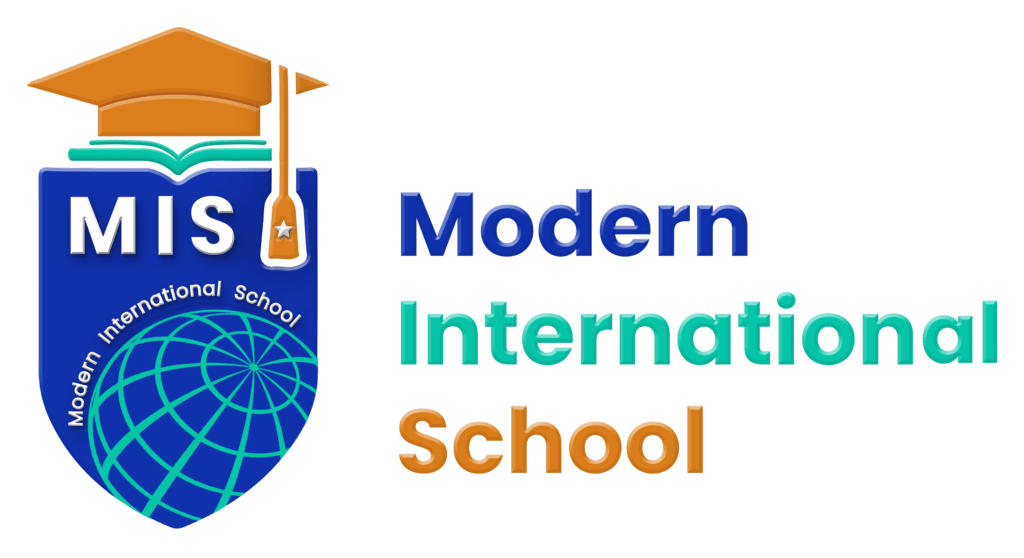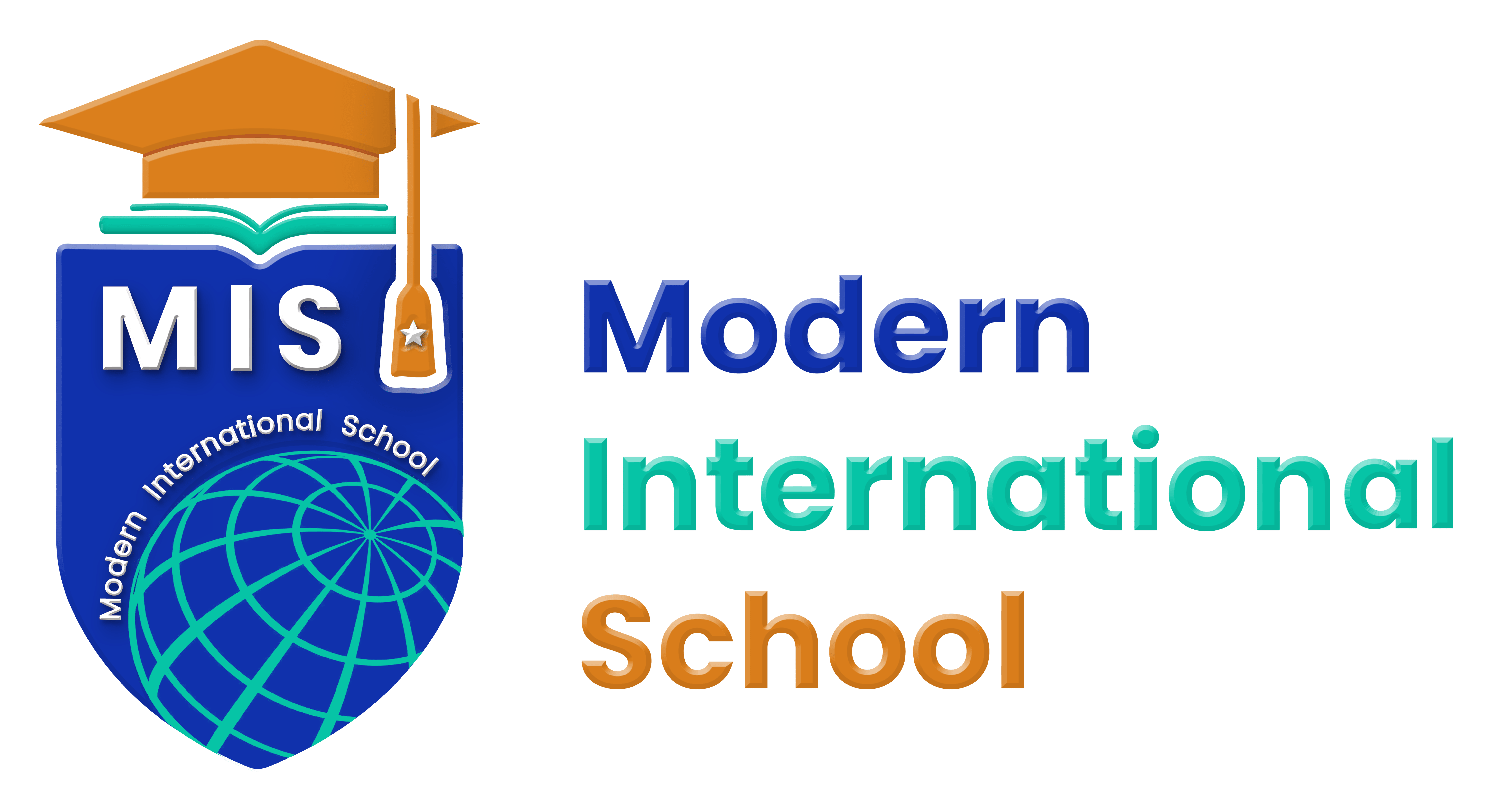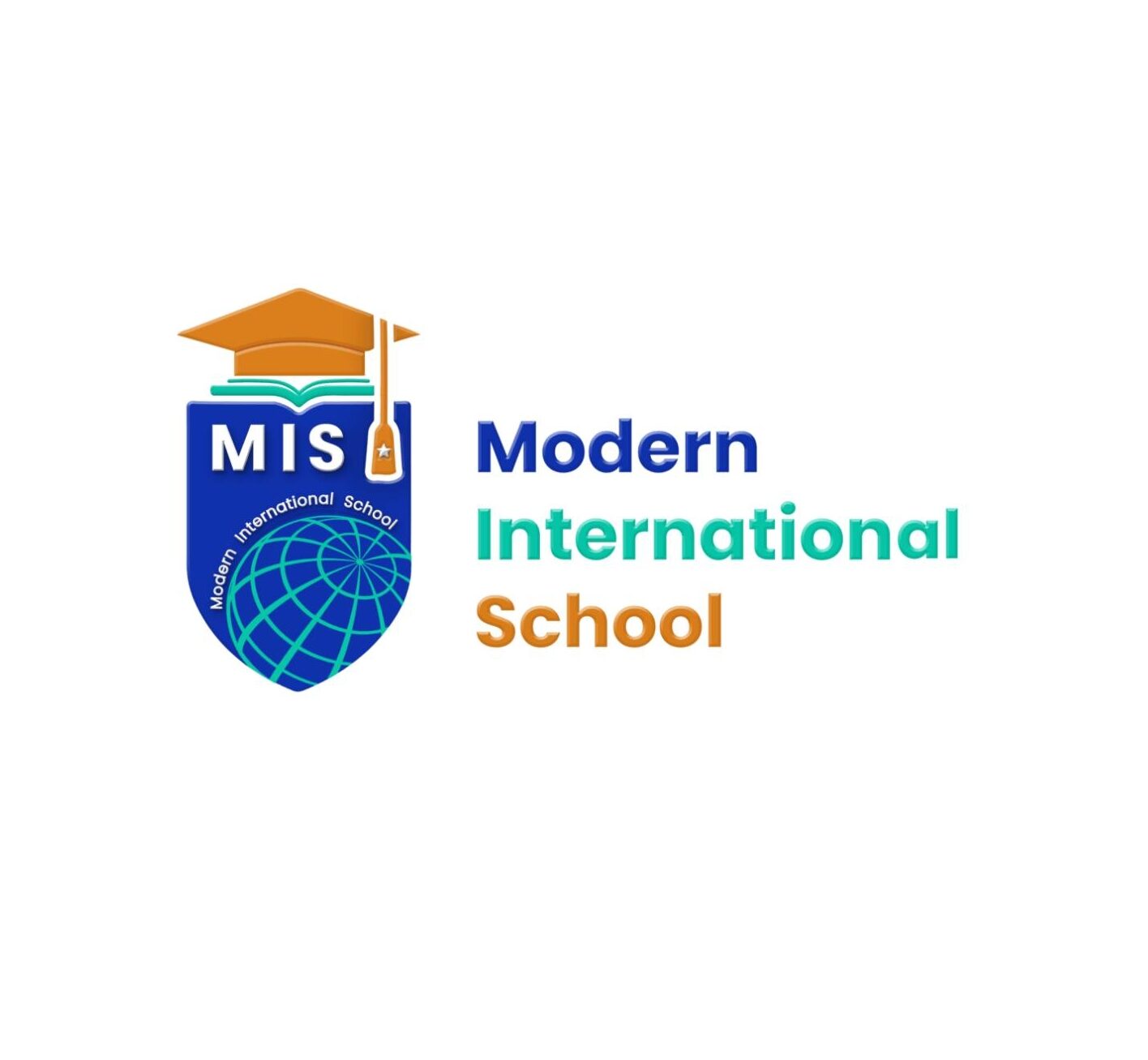.
MIS: Modern International School
Montessori kindergarten and primary International Private School in Tangier
Development of multiple intelligences
(Period 4 of the day).
Howard Gardner, a psychologist and professor of neurology at Boston Medical School, developed the multiple intelligence approach in 1983.
The approach aims to recognize and develop the various cognitive abilities that individuals possess to varying degrees, rather than viewing intelligence as a single, fixed entity.
Since its development, the Multiple Intelligence approach has been widely applied in many renowned schools in the United States and around the world.
The MIS Global Method is an educational approach that also incorporates the Multiple Intelligence approach, using the latest research and recognized educational practices worldwide.
At the Modern International School, multiple intelligences are a mandatory daily program for all students as part of the overall MIS vision.
During their day, students develop multiple intelligences through workshops, including:
Carte Mentale
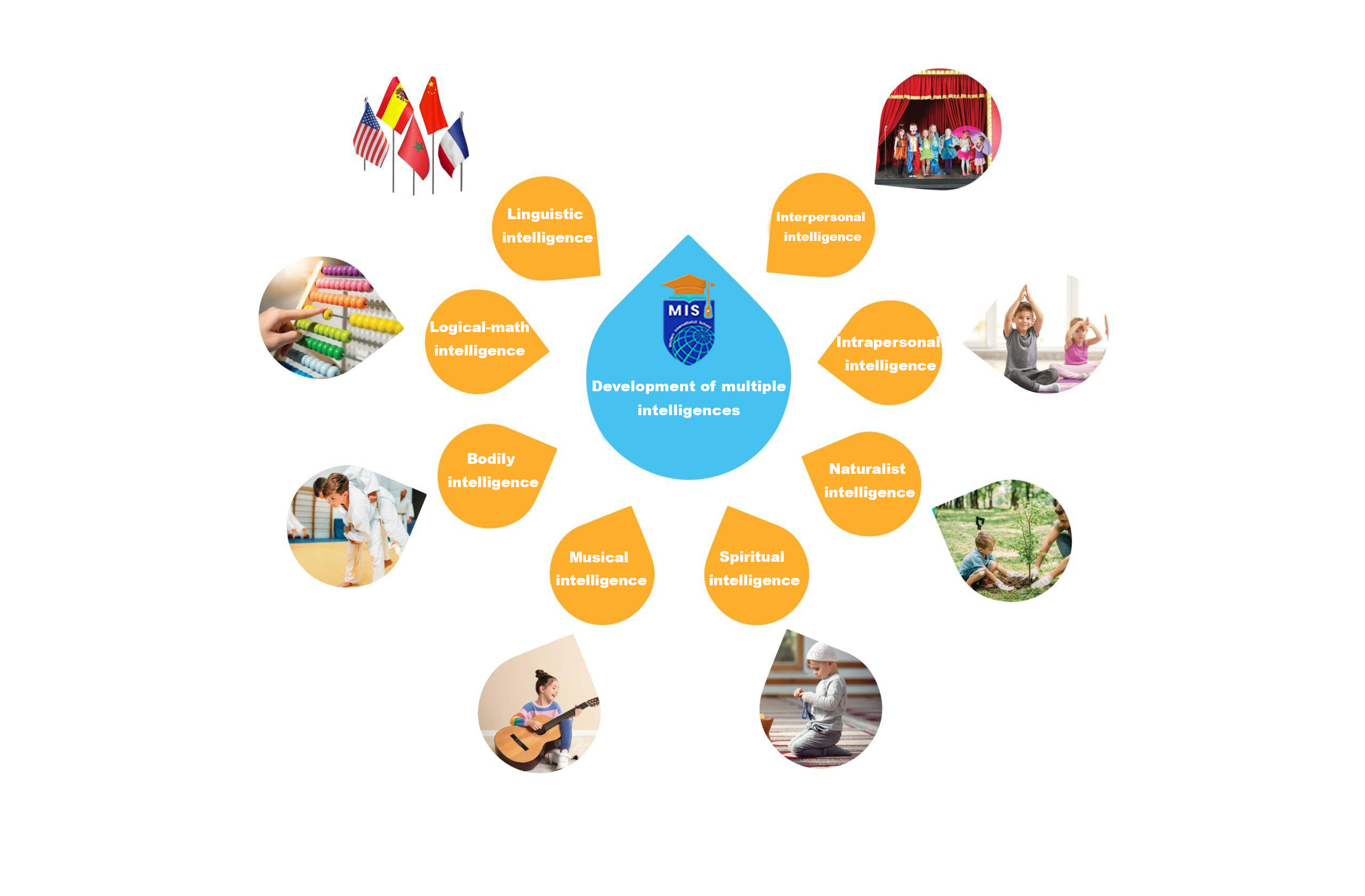
Body-kinesthetic intelligence
Body-kinesthetic intelligence is the ability to use one’s body to communicate or express oneself in daily life, perform physical exercises, or engage in sports.
If this intelligence is not sufficiently developed, a child may feel their body is a hindrance in many circumstances of daily life.
At MIS, our students participate in a variety of activities as part of a specific program, including :
- Dance workshops
- Judo sports activities
- Theater activities
Through the practice of these activities, children develop their physical intelligence, becoming comfortable and skilled with their bodies without feeling self-conscious.
The development of this intelligence could lead them to professions such as surgeons, actors, artists, or craftsmen.
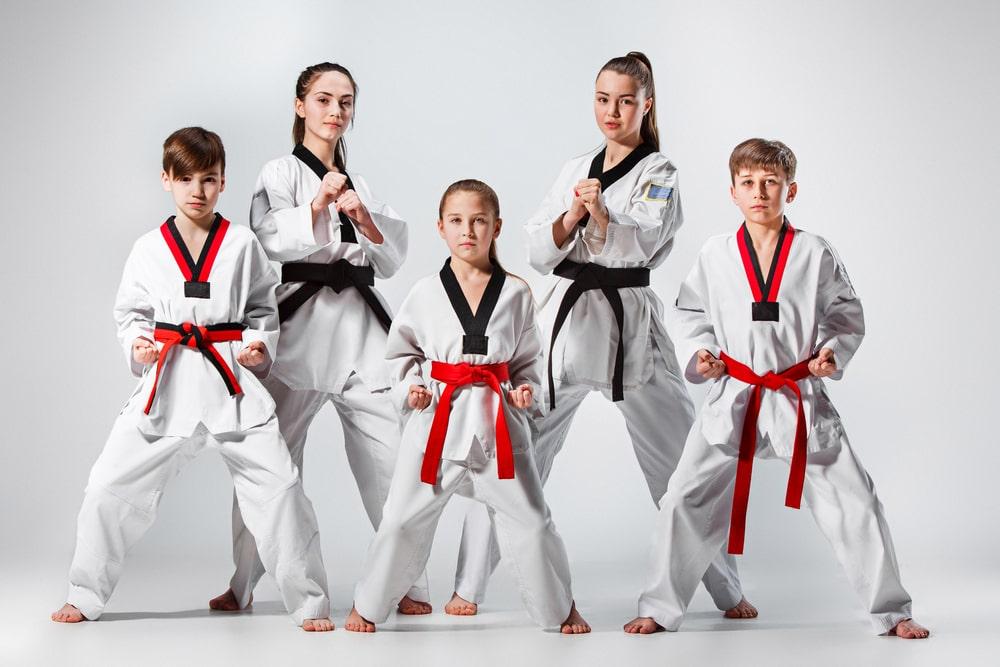
Musical intelligence
Musical intelligence refers to the ability to think in rhythm and melody, recognize and memorize musical patterns, interpret and create them, and be sensitive to the musicality of words and phrases, as well as to appreciate art.
If this intelligence is not sufficiently developed, individuals may miss out on the richness and emotions conveyed through sounds, whether in music or the infinite variations of the language.
At our school, learning music is considered essential to the development of our students’ personalities.
Through musical activities, our students become more sensitive to melodies and rhythms, and they enjoy and understand music that can have a relaxing effect on them.
They can also use the rhythm of music to develop their learning and comprehension skills, as well as their sensitivity to the accents of foreign languages.

Interpersonal or social intelligence
Interpersonal or social intelligence refers to an individual’s ability to interact effectively and appropriately with others. It involves skills such as empathy, cooperation, and tolerance.
If this intelligence is underdeveloped, it can lead to a tendency to withdraw from social situations, which can result in a loss of opportunities for collaboration and connection. There is also a risk of becoming isolated and bitter.
At MIS, we place a strong emphasis on developing students’ social intelligence. We encourage them to work in groups and provide workshops on topics such as non-violent communication, theater, and public speaking.
The goal is to equip our students with the skills to establish positive relationships, solve interpersonal problems, and generate effective solutions.
Proficiency in social intelligence can prepare individuals for careers in a wide range of fields, such as politics, leadership, and team management.

Intrapersonal intelligence
Intrapersonal intelligence is the ability to understand one’s own emotions, thoughts, behaviors, and desires. It involves self-awareness and the capacity for introspection.
If this skill is underdeveloped, individuals may struggle to take control of their lives and set goals for themselves, which can impede their personal and professional growth.
At MIS, we recognize the importance of developing intrapersonal intelligence and offer workshops that use role-plays and specific scenarios to help students cultivate this skill.
Our students are encouraged to spend time alone, think deeply, analyze their emotions, and manage their learning needs effectively.
Proficiency in intrapersonal intelligence can be useful in a range of careers, such as computer science, psychology, science, and animation, where individuals must be able to manage their own thoughts and emotions effectively to excel in their work.

Naturalist Intelligence
Naturalist intelligence refers to an individual’s ability to understand and appreciate the natural world. People with this intelligence often have a keen interest in environmental education, exploring their surroundings, and studying animal behavior. They are attuned to changes in their environment, no matter how subtle.
If naturalist intelligence is not sufficiently developed, individuals may find it challenging to connect with nature and may struggle to observe and respect the natural world.
At MIS, we prioritize developing a culture of nature through gardening workshops, visits to educational farms, and caring for animals at school.
Our students learn to observe the natural world, develop a love for nature, and cultivate a deep sense of respect and stewardship.
Proficiency in naturalist intelligence can lead to careers in a variety of fields, such as botany, veterinary medicine, oceanography, and exploration, where individuals can use their knowledge and appreciation of the natural world to make a positive impact.

Spiritual intelligence
Spiritual intelligence is the ability to question the meaning and purpose of life. It involves contemplating our origins and destiny and situating oneself concerning ethical principles and responsible behavior.
A lack of spiritual intelligence can result in difficulties respecting others, and finding one’s place in the universe.
At MIS, we offer workshops on Islamic culture and civilization based on Muslim religious values. These workshops complement our academic courses on Islamic education.
We also encourage parents to participate in these workshops to support their children’s spiritual journey.
MIS students develop a deep understanding of the Muslim religion and its principles of love, sharing, and respect before embarking on their journey to make a positive impact in the world.
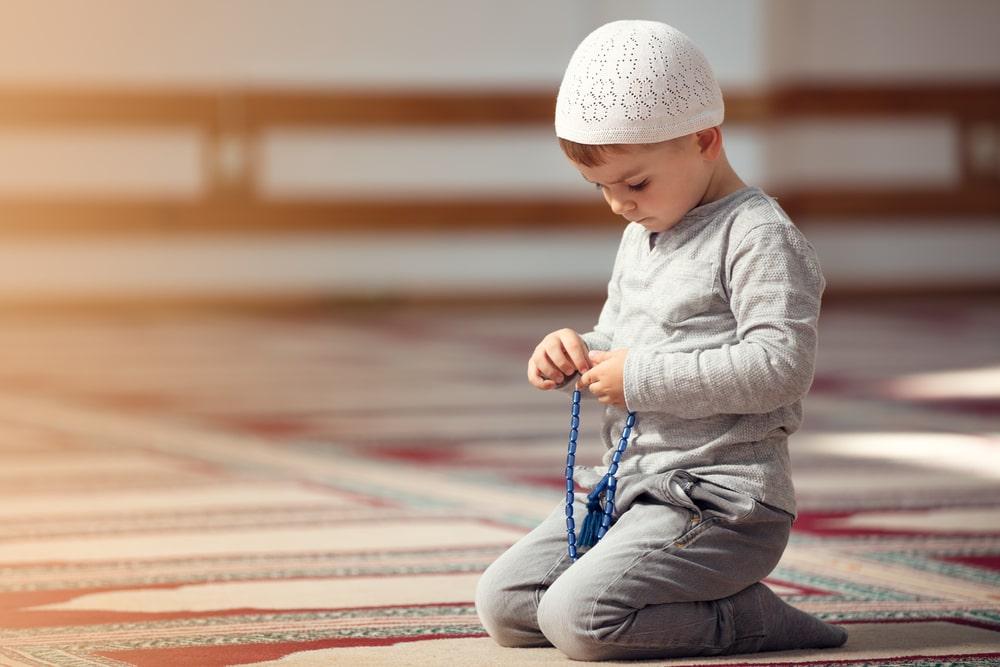
Verbal/linguistic intelligence
Verbal/linguistic intelligence is the ability to use language, both written and spoken, to create stories, memorize information, and engage in analytical reading.
If this skill is not sufficiently developed, it can lead to academic struggles, feelings of being misunderstood, and even violent reactions.
At MIS, we offer workshops on reading, vocabulary, elocution, storytelling, crossword puzzles, Scrabble, and other language-based activities to help develop this intelligence.
As a result, our students become proficient in using language effectively, enjoy reading and writing, have strong speaking skills, and can synthesize information effectively.
Proficiency in verbal and linguistic intelligence can be useful in a range of careers, such as writers, poets, orators, politicians, advertisers, journalists, and many others who rely on strong communication skills to excel in their work.
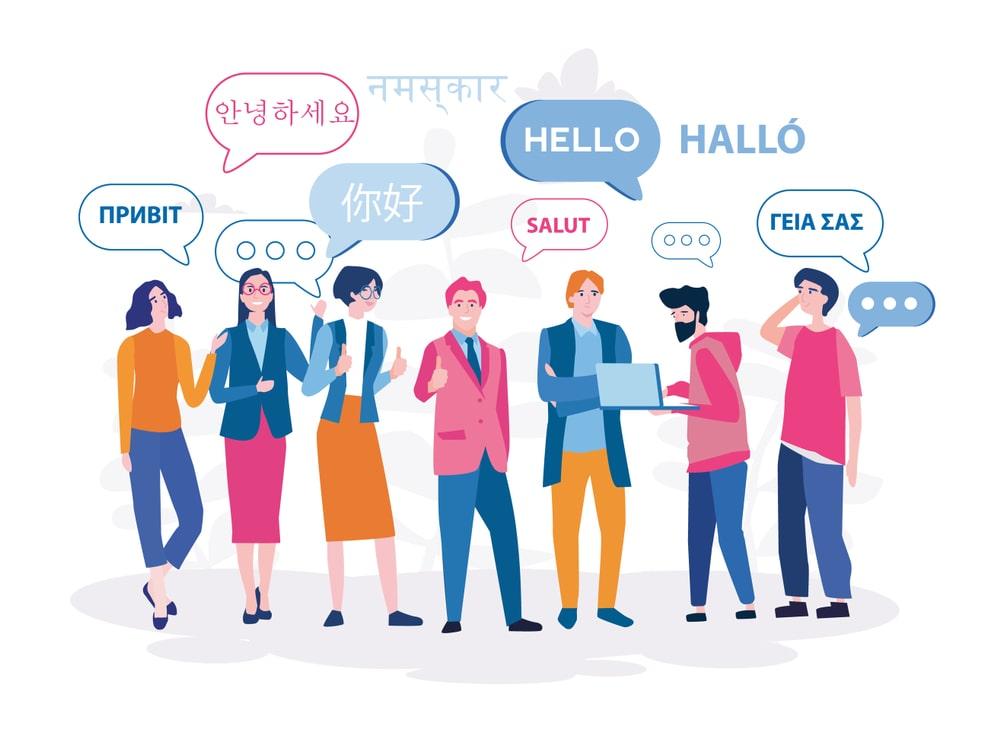
Logical-mathematical intelligence
Logical-mathematical intelligence refers to the capacity for understanding numbers, reasoning logically, and analyzing and solving complex problems.
At MIS, we offer workshops on calculation, problem-solving, puzzles, and logic games to help our students develop their logical-mathematical intelligence.
Our students gain proficiency in math, problem-solving, and number manipulation through these activities.
Logic-mathematical intelligence can lead to a range of careers, including research, mathematics, computer development, engineering, and accounting.

